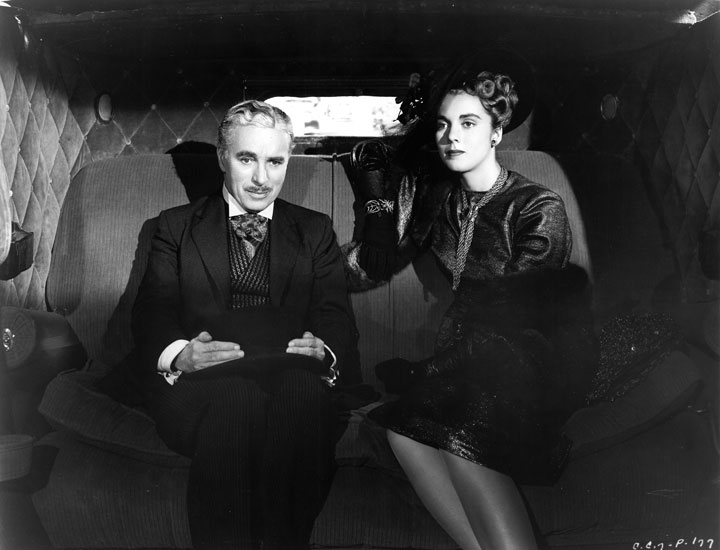
Review by Noah Mallin
The story goes that the idea for Monsieur Verdoux, based on a real case, was given to Charlie Chaplin by Orson Welles. Chaplin neglected to credit Welles onscreen until after the film’s premiere in 1947 – just in time for an onslaught of negative reviews.
It’s easy to see what reviewers found so unsettling about the film in those immediate years after World War II. Though the meat of the plot is similar in essence to the kind of thing Britain’s Ealing studious turned out to such acclaim in the 50s – The Ladykillers obviously comes to mind, it’s delivered in a sandwich of social criticism that betrays deep cynicism about the war just ended and the many more to come.
This is not the sweet lovable Charlie of his classic work though he’s every bit as good at winning the audiences sympathy even when doing something rotten. So harsh is the ultimate judgment of the film that it contributed greatly to Chaplin’s blacklisting and estrangement from the
Chaplin plays the title character, a former bank clerk now out of work thanks to the beginnings of the great depression. Unable to find work to support his crippled wife and young child he falls back on his charming way with women, older women of some means in particular. He then fleeces them for their money, usually dispatching them to the great beyond once his goal is achieved. He does a great bit of business throughout the film as he counts the money he gets from his victims, fingers whirring through the stacks of francs as only a bank clerk’s could.
That this is all quite funny is a testament to how great a comedian Chaplin is. His lilting voice, fastidious mustache (here long and thin- he’s no longer the little tramp) and trim compact frame are a constant contrast to his older, often larger marks. A hint of the social commentary to come is in his nonchalant use of an incinerator at the start of the film to hide the evidence of one of his victims – a queasy echo of the Nazi’s atrocities.
Of course complications begin to crop up – the police begin to catch on but more importantly a young Martha Raye is Charlie’s nest intended and she just won’t help him out at ll. Unlike his other victims she’s brassy and crude and less likely to take all her money out of the bank just because he tells her there’s a panic. Steve Martin’s interpretation of Inspector Clouseau in the execrable Pink Panther remake owes much to Chaplin's Verdoux, just as the loud brashness of Bette Midler finds some of it's genesis in Raye’s perf.
Chaplin discovery Marilyn Nash shows up halfway through the film and again at the end and there’s more heat with these two than with the token scenes with Verdoux’s family. Nash is utterly adorable in her floppy hat and hand me down clothes and gorgeously elegant in her limousine at the end. Chaplin can't seem to help but make eyes at her.
The film does go on a bit too long and the tonal shift into outright social criticism grinds the gears a bit. Chaplin’s insistence that his murders were only the response of a small businessman doing on a small scale what big business did all the time with millions still feels like a contrived excuse. Some things are still better shown than told. It’s a recasting of all we’ve seen in a completely different light. Still it adds an unusual element to the film and stamps it as the work of its genius writer/directer/star -- anyone else would have been told to reign it in. Though the effect is jumbled it still makes this film that much more treasurable - it's unique combination of elements like Verdoux, are irresistible to those that are prone to its charm, sting in the end or not.





No comments:
Post a Comment